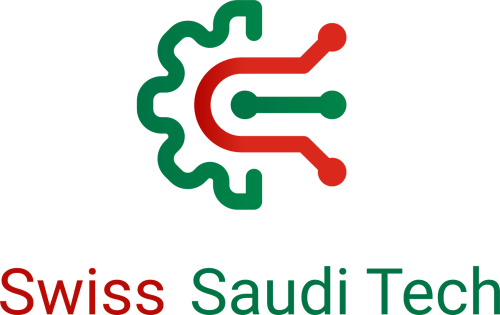Exploring the Impact of Advanced Technologies on Saudi’s Healthcare Sector Under Vision 2030
Smart Healthcare in Vision 2030 is rapidly transforming how medical services are delivered in Saudi Arabia. This initiative is a core pillar of the national agenda to diversify the economy and improve the quality of life for its citizens.
Enhancing Healthcare Delivery through Innovative Technologies
The integration of Artificial Intelligence (AI), blockchain, and the Metaverse into Saudi Arabia’s healthcare sector under Vision 2030 showcases significant advancements in medical technology. AI algorithms are being deployed to predict patient diagnoses and outcomes more accurately, enhancing the efficiency of treatments and reducing unnecessary procedures. Blockchain technology ensures the security of medical records, while the Metaverse offers new ways to train healthcare professionals and conduct remote consultations, drastically reducing the physical and geographical barriers between doctors and patients.
Strategic Partnerships and International Collaboration
Switzerland, renowned for its precision and excellence in healthcare, plays a pivotal role in Saudi Arabia’s healthcare transformation. Collaborative projects and knowledge exchanges between these two nations help integrate cutting-edge technologies and management practices into the Saudi health sector. These international partnerships not only bolster the technological framework but also bring a wealth of expertise in change management and executive coaching, crucial for navigating the complexities of modern healthcare environments.
Leadership and Skills Development within the Healthcare Sector
Effective communication and leadership are essential in the evolving landscape of Saudi healthcare. Vision 2030 emphasizes building local capacities in medical leadership and management skills. Executive coaching sessions, focused on project management and strategic decision-making, are routinely organized to empower Saudi healthcare leaders. These initiatives ensure that the management of healthcare facilities aligns with international standards and practices, fostering a culture of continuous improvement and innovation.
The Role of Generative AI in Personalized Medicine
Generative Artificial Intelligence is revolutionizing the way healthcare providers in Saudi Arabia approach patient care. By analyzing vast amounts of data, AI can generate personalized treatment plans that are optimized for each patient’s unique health profile. This not only improves the effectiveness of treatments but also enhances patient engagement and satisfaction by providing care that is tailored to individual needs.
Blockchain for Secure and Efficient Healthcare Operations
Another technological breakthrough under Vision 2030 is the use of blockchain to streamline healthcare operations. By creating a decentralized ledger for medical records, blockchain technology enhances the privacy and security of patient data and facilitates a more seamless exchange of information between different healthcare providers. This integration leads to more coordinated care and improved health outcomes.
Embracing the Metaverse for Advanced Medical Training
The Metaverse is set to transform medical education in Saudi Arabia by providing immersive, virtual environments where medical professionals can gain hands-on experience without the risks associated with traditional training methods. This innovative approach not only accelerates learning curves but also helps in disseminating best practices across the healthcare ecosystem efficiently and effectively.
Promoting Preventive Healthcare through Data Analytics
Data analytics plays a crucial role in promoting preventive healthcare strategies in Saudi Arabia. By analyzing vast datasets from various sources, including electronic health records and wearable devices, healthcare providers can identify patterns and trends to predict and prevent diseases more effectively. This proactive approach not only improves patient outcomes but also reduces healthcare costs by addressing health issues before they escalate. By harnessing the power of data analytics, Saudi Arabia is advancing towards a healthcare system focused on wellness and prevention.
Remote Patient Monitoring for Enhanced Accessibility
Remote patient monitoring (RPM) technologies are revolutionizing healthcare accessibility in Saudi Arabia, particularly in remote or underserved areas. Through wearable devices and telehealth platforms, patients can receive real-time monitoring and consultations from healthcare professionals without the need for frequent visits to hospitals or clinics. RPM not only improves patient convenience and comfort but also enables early intervention and management of chronic conditions, leading to better health outcomes and reduced healthcare disparities across the Kingdom.
Ethical Considerations in Healthcare Technology Adoption
As Saudi Arabia embraces advanced technologies in healthcare, it’s essential to address ethical considerations surrounding data privacy, patient consent, and algorithmic bias. Robust regulations and guidelines ensure that patient rights are protected, and healthcare providers adhere to ethical standards in the use of technology. Moreover, ongoing education and awareness campaigns raise awareness among healthcare professionals and the public about the ethical implications of healthcare technology adoption. By prioritizing ethical considerations, Saudi Arabia ensures that technological advancements in healthcare serve the best interests of patients and society as a whole.
#smart_healthcare, #vision2030, #saudi_arabia_health, #switzerland_partnership, #change_management, #executive_coaching, #effective_communication, #business_success, #management_consulting, #AI_healthcare, #blockchain_security, #metaverse_training, #generative_ai, #leadership_development, #project_management











